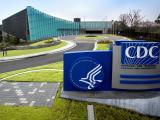Dec 7, 2011 (CIDRAP News) – A group of health organizations today launched a new international consortium to better prepare the clinical research community to respond to the next pandemic or other emerging health threat.
Known as the International Severe Acute Respiratory Infection Consortium (ISARIC), the collaboration is made up of more than 20 hospital-based clinical research networks, with the goal of putting in place open-access protocols, data-sharing processes, and ethical frameworks to streamline the response to rapidly emerging diseases such as SARS (severe acute respiratory syndrome) and the 2009 H1N1 pandemic.
The consortium was launched in an announcement in Philadelphia at the annual meeting of the American Society for Tropical Medicine and Hygiene (ASTMH) by the groups that are backing it. They include the Wellcome Trust, the UK Medical Research Council, the Bill and Melinda Gates Foundation, Inserm, Li Ka Shing Oxford Global Health Programme, and Singapore's health ministry, according to a Wellcome Trust press release.
The group's initial focus is on acute respiratory diseases in hospitalized patients, focusing on how the diseases develop and exploring optimal treatment and transmission prevention, according to the release.
Studies will be conducted during both interpandemic periods and as threats emerge. Efforts will also include training, capacity building, and public engagement activities.
Dr Jeremy Farrar, who will chair the consortium, said in the press release that clinical research is a crucial element in the response to new epidemics and pandemics. Farrar is director of the Wellcome Trust Vietnam Research Programme and Oxford University Clinical Research Unit for Tropical Disease in Vietnam.
"The processes needed to initiate clinical studies and share data and samples effectively can take time to establish, but the faster we can react and the more trust we have built before the outbreak, the more effective will be our response and the more lives we can potentially save, " he said.
"By bringing together the many existing clinical research networks around the globe, by pooling the expertise across many countries, we can lay down the groundwork so that we are better prepared as a clinical community."
He said other groups such as public health, epidemiology, modeling, and virology have improved their response and collaborations since the SARS epidemic, but the clinical research community has been slow to respond to new threats. "The ISARIC network and its global partners hope to address this," Farrar said.
Members of ISARIC will develop and implement standardized protocols, metrics, and data-sharing processes and use preapproved, open-access methods that can be rapidly triggered in the event of a novel threat, a measure designed to allow researchers from high- and low-income countries to work together and share data, according to the press release. Networks that have already signed on are located on all six continents.
ISARIC is working closely with the newly formed InFACT Network, which includes 17 intensive care research groups from across the globe.
Dr James Kazura, who was installed today as ASTMH's new president, told CIDRAP News that during the 2009 H1N1 pandemic, the sequencing and identification of organisms was rather slow, due to a lack of well-established networks with trusted exchange processes in place. Kazura is professor of international health and the director of the Center for Global Health and Diseases at Case Western Reserve University in Cleveland.
He said the ISARIC will allow researchers on different continents to discuss cases that don't meet the usual diagnostic criteria and compare notes. "This takes it one step closer to the actual patients," Kazura added.
He said two key benefits are that the system could help clinicians identify and treat diseases earlier and could be used to simulate ahead of time how response and communication systems will work. He envisions that the model could someday be applied to other disease categories, such as encephalitis.
Kazura said the system could also help save costs, "so that there are not as many blind alleys to go down" in clinical research.
See also:
Dec 7 Wellcome Trust press release


















